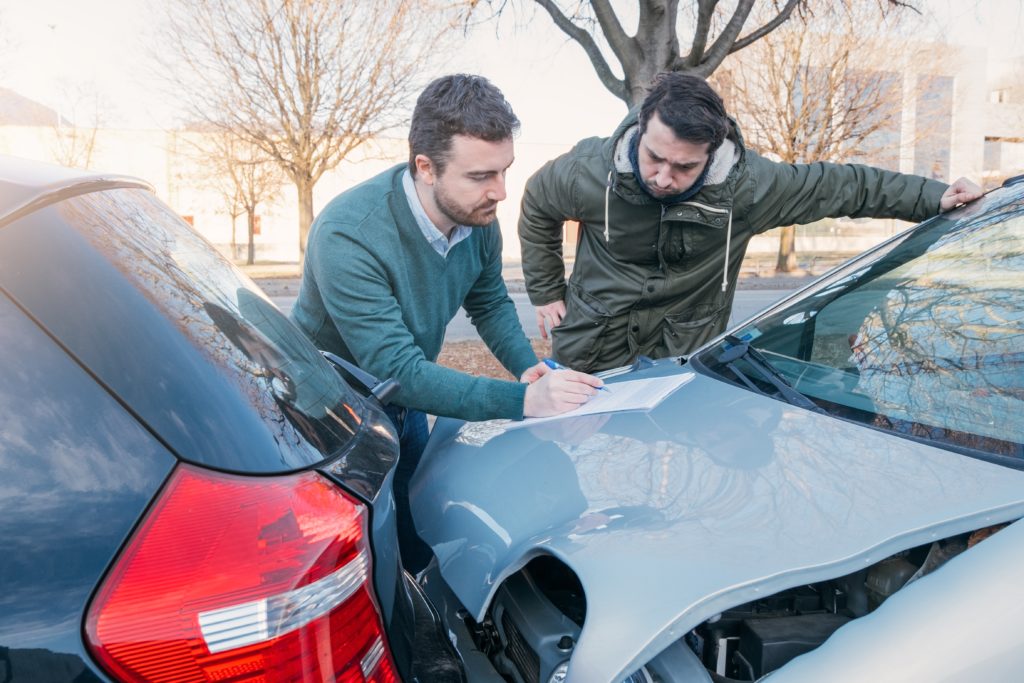Who is at Fault in a Rear-end Collision

If you’ve been the victim in a rear-end collision or accused of being at fault in a one, it’s important to understand your rights under Arizona law.
This post will talk about some of the key things you need to know about rear-end collisions. It will spell out the process for navigating the Arizona insurance and legal channels, and offer some insights to help you protect yourself and your rights.
Get Your Records
First and foremost, you want to have a thorough exam by a physician to identify any and all signs of injury. Even if you don’t feel injured, you might be. The spine, especially, can show signs of injury up to weeks, months or even years after an accident. To be safe, schedule an appointment for an exam and if your doctor recommends it, get some x-rays.
Ensure your physician keeps detailed records in your case, and that you stick to any care plan he or she prescribes. Sticking to a physician-recommended care plan is important in negotiating with insurance companies and in representing your interests in court, so don’t take this lightly. A single missed appointment or failure to show documented improvement could hurt your case. Don’t take this chance.
Next, get a copy of your accident report. The details in this report offer strong clues as to how your case might look to insurance companies and in court. You can request a copy of your accident report.
Once you have your report, go over every little detail. If there’s an error, you need to know, especially if it compromises your ability to represent your best interests.
Your Arizona accident report will include facts and the responding officer’s professional opinion about how your accident happened. It will include important contact details for other parties involved in the accident, details about their vehicle and coverage, and the same details about you, your vehicle and your coverage.
All of this is valuable information when negotiating with insurance companies and representing your case in court. When it comes to rear-end collisions, the more you know about your accident report, the better you can represent your case to insurance companies and the court system.
Understand Your Rights
In Arizona, it is generally assumed that the rear-most vehicle in any rear-end collision is the “at fault” vehicle. In fact, this is common across the United States.
Some states are so-called “no fault” states, meaning that regardless of the cause or outcome of an accident, each party involved is expected to cover their own costs for any damage or medical care.
Arizona is not one of these states.
In Arizona, the driver of the rear vehicle is almost always assumed to be at fault in a rear-end collision due to their failure to keep a reasonably safe distance from the vehicle ahead. However, sometimes fault isn’t so crystal-clear. Multi-car collisions are perfect examples.
In a multi-car rear-end collision, the car that caused the crash or chain reaction is almost always the car at fault, and the affected vehicles in between are victims. In this example, the car that created the chain reaction crash is the financially responsible car “at fault.” This is almost always the car at the very rear of the chain of vehicles.
If that car is your car, you may be found to be at fault, and you will want to ensure you have legal representation to limit your liability and your costs.
If you were the victim of a rear-end collision, you, too, may need legal representation. You will want to ensure all of your related costs are covered, including costs to repair damage to your vehicle, medical costs and lost wages due to an inability to work.
Some accident victims make the mistake of accepting low settlements too soon with insurance companies eager to control their costs. Don’t be a victim twice. Talk with us about your case. Let us take a look at your accident report. Together, we can ensure you are properly represented with insurance companies and, if necessary, in court.
If you’ve been the victim of a rear-end collision or accused of being at fault, contact us today to schedule a free consultation. We can help you understand your rights under Arizona law and ensure you are well represented in court and with insurance companies.
